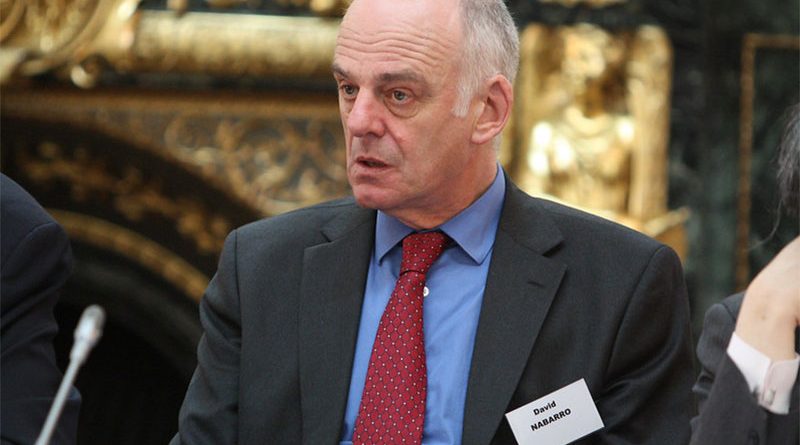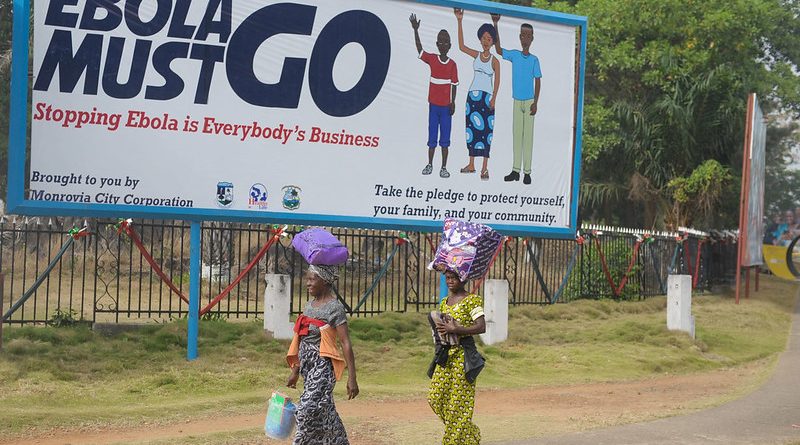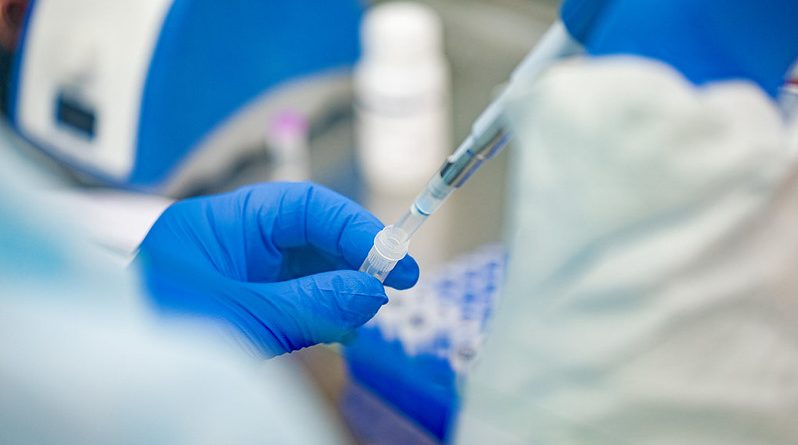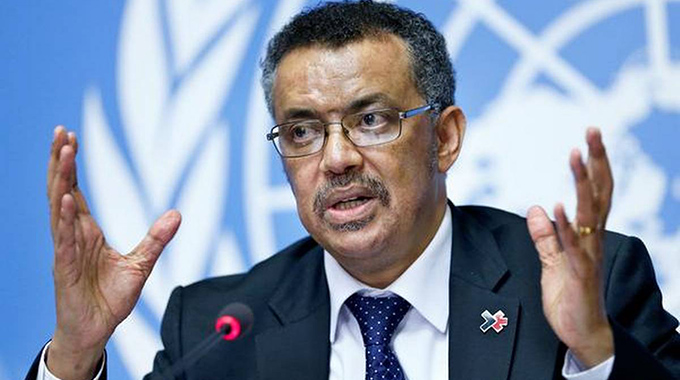A World Health Organization (WHO) special COVID-19 envoy predicted a third wave of the pandemic in Europe in early 2021 if governments repeat what he said was a failure to do what was needed to prevent the second wave of infections.
“They missed building up the necessary infrastructure during the summer months after they brought the first wave under the control,” the WHO’s David Nabarro said in an interview with Swiss newspapers.
“Now we have the second wave. If they don’t build the necessary infrastructure, we’ll have a third wave early next year,” said Nabarro, a Briton who campaigned unsuccessfully to become the WHO director general in 2017.
Europe briefly enjoyed sinking infection rates that are now surging again: Germany and France on Saturday saw cases rise by 33,000 combined, Switzerland and Austria have thousands of cases daily, while Turkey reported a record 5,532 new infections.
Nabarro singled out Switzerland’s move to allow skiing – with masks required in gondolas – as other Alpine nations like Austria have shuttered resorts. Nabarro said Switzerland could reach a “very high level of sicknesses and deaths”.
“Once the infection rates sink, and they will sink, then we can be as free as we want,” Nabarro was quoted as saying by the Solothurner Zeitung. “But right now? Should ski resorts open? Under what conditions?”
Nabarro lauded the response of Asian countries like South Korea, where infections are now relatively low: “People are fully engaged, they take on behaviours that make it difficult for the virus. They keep their distance, wear masks, isolate when they’re sick, wash hands and surfaces. They protect the most endangered groups.”
Nabarro also said Asia did not relax restrictions prematurely.
“You must wait until case numbers are low and stay low,” he said. “Europe’s reaction was incomplete.”
Source – Thomson Reuters Foundation.
DEMOCRATIC Republic of Congo announced the end of an almost six-month Ebola outbreak in the west of the country as health authorities looked to apply lessons from the successful response to the fight against COVID-19 in Africa.
The outbreak, which infected 130 people and killed 55, emerged in June, weeks before a separate Ebola epidemic in the east drew to a close. That one killed more than 2,200 people, the second-most in the disease’s history.
“I am pleased to solemnly declare the end of the 11th epidemic of Ebola virus disease in Equateur Province,” Health Minister Eteni Longondo told a news conference.

Longondo attributed the success of the response to the ready availability of vaccines and treatments as well as efforts to move treatment centres closer to local communities.
Medics vaccinated 40,000 people in communities scattered across rainforests that often lacked electricity. They used cold-chain technology to keep vaccines at temperatures as low as -80 degrees Celsius, the World Health Organization (WHO) said.
“The technology used to keep the Ebola vaccine at super-cold temperatures will be helpful when bringing a COVID-19 vaccine to Africa,” said WHO’s Africa director, Matshidiso Moeti.
The International Federation of Red Cross and Red Crescent Societies said it was applying best practices from the Ebola outbreak to COVID-19 including the use of rapid response teams of local volunteers.
African countries have been spared the worst consequences of COVID-19, with relatively low death and infection rates, but the outbreak is still testing already fragile health systems.
Congo has suffered 11 Ebola outbreaks since the virus was discovered near the Ebola River in 1976, more than double any other country.
Its equatorial forests are a natural reservoir for the virus, which causes severe vomiting and diarrhoea and is spread through contact with body fluids.
Source – Thomson Reuters Foundation.
CONSPIRACY theories and misinformation fuel mistrust in vaccines and could push levels that potential COVID-19 vaccines are taken in the United States and Britain below the rates needed to protect communities against the disease, a study has found.
The study of 8,000 people in the two countries found that fewer people would “definitely” take a COVID-19 vaccine than the 55% of the population scientists estimate is needed to provide so-called “herd immunity”.
“Vaccines only work if people take them. Misinformation plays into existing anxieties and uncertainty around new (COVID) vaccines, as well as the new platforms that are being used to develop them,” said Heidi Larson, a professor at the London School of Hygiene & Tropical Medicine, who co-led the study.
“This threatens to undermine the levels of COVID-19 vaccine acceptance,” added Larson, who is also director of the international Vaccine Confidence Project.
The study comes as one of the major vaccine efforts showed promising results this week. Pfizer Inc said on Monday its experimental COVID-19 vaccine is more than 90% effective based on interim data from late-stage trials. The data were seen as a crucial step in the battle to contain a pandemic that has killed more than a million people.
In the misinformation study, 3,000 respondents in each country were exposed between June and August to widely circulating misinformation on social media about a COVID-19 vaccine. The remaining 1,000 in each country, acting as a control group, were shown factual information about COVID-19 vaccines.
Before being exposed to misinformation, 54% of those in the UK said they would “definitely” accept a vaccine, as did 41.2% in the United States. But after being shown the online misinformation, that number fell by 6.4 percentage points in the UK group, and by 2.4 percentage points in the United States.
In both countries, people without a college degree, those in low-income groups and non-whites are more likely to reject a COVID-19 vaccine, the study found.
Women were more likely than men to refuse a COVID-19 vaccine, but more respondents in both countries said they would accept a vaccine if it meant protecting family, friends, or at-risk groups.
Source – Thomson Reuters Foundation.
THE World Health Organization (WHO) says the challenge of the coronavirus was not a choice between life and livelihoods, but that they were both part of the same fight.
It also said there was no time for complacency in confronting the coronavirus despite positive news about possible vaccines.
“The quickest way to open up economies is to defeat the virus,” WHO Director-General Tedros Adhanom Ghebreyesus told a virtual briefing in Geneva.
He said G20 leaders would meet this weekend, giving them an opportunity to commit financially and politically to the COVAX global facility, set up to provide COVID-19 vaccines to poorer countries.
Several companies have published promising results with their vaccine candidates, but Tedros warned that people should not be complacent.
“Right now we are extremely concerned by the surge in COVID-19 cases we’re seeing in some countries,” Tedros said.
“Particularly in Europe and the Americas, health workers and health systems are being pushed to breaking point.”
More than 54.44 million people have been reported infected by the coronavirus globally and 1,318,042 have died, according to a Reuters tally.
Infections have been reported in more than 210 countries and territories since the first cases were identified in China last December.
Source – Thomson Reuters Foundation.




